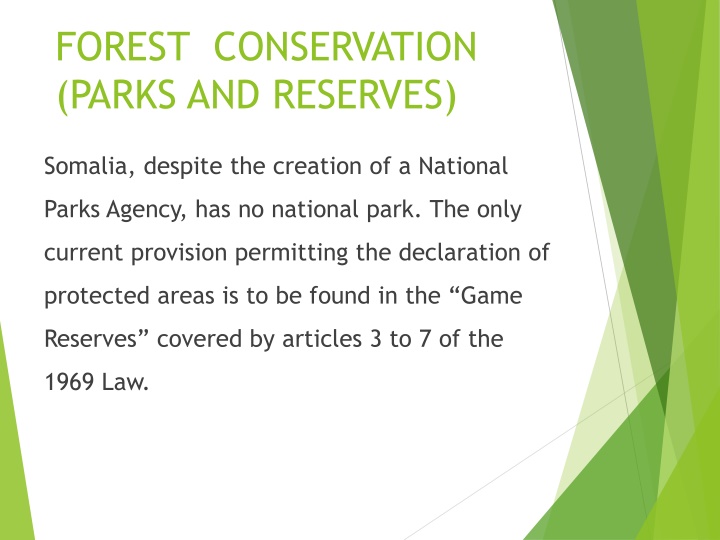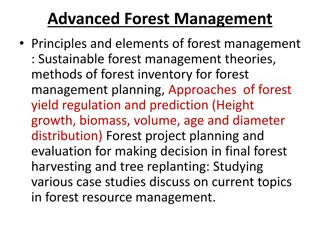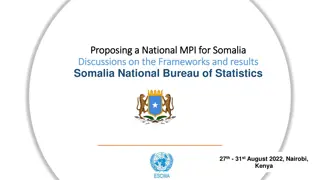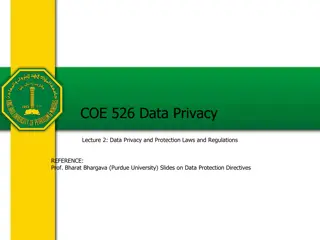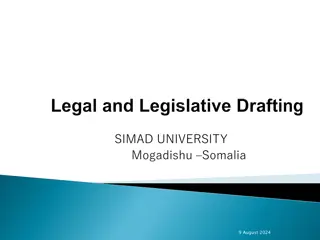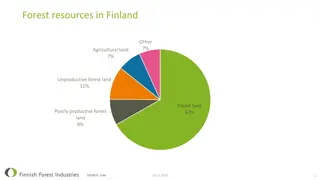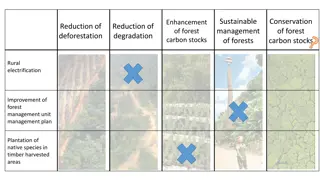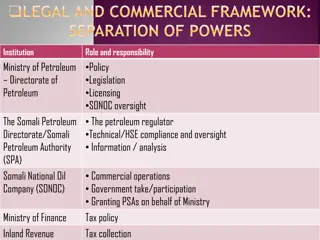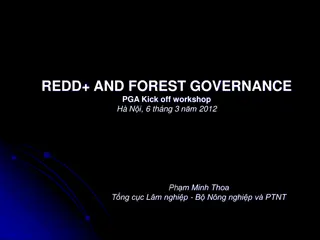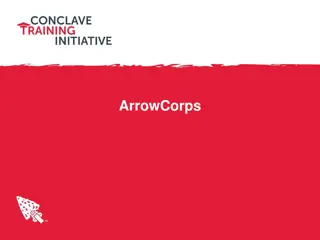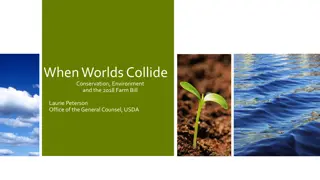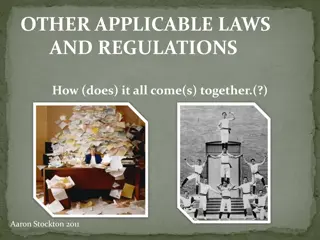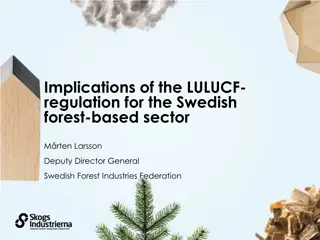Forest Conservation in Somalia: Laws and Regulations
Somalia lacks a national park but has provisions for game reserves under the 1969 Law. The law prohibits hunting in these reserves. It specifies rules for entry, residency, and activities within the reserves, with enforcement carried out by designated officers. Protection of vegetation is emphasized, with restrictions on damaging or setting fire to it. The enforcement of these laws entails penalties for offenders and empowers officers to inspect and search for violations.
Download Presentation

Please find below an Image/Link to download the presentation.
The content on the website is provided AS IS for your information and personal use only. It may not be sold, licensed, or shared on other websites without obtaining consent from the author.If you encounter any issues during the download, it is possible that the publisher has removed the file from their server.
You are allowed to download the files provided on this website for personal or commercial use, subject to the condition that they are used lawfully. All files are the property of their respective owners.
The content on the website is provided AS IS for your information and personal use only. It may not be sold, licensed, or shared on other websites without obtaining consent from the author.
E N D
Presentation Transcript
FOREST CONSERVATION (PARKS AND RESERVES) Somalia, despite the creation of a National Parks Agency, has no national park. The only current provision permitting the declaration of protected areas is to be found in the Game Reserves covered by articles 3 to 7 of the 1969 Law.
FOREST CONSERVATION (PARKS AND RESERVES) Schedule 1 prescribes the boundaries of four such reserves. As a general rule hunting is forbidden, though the Law does not seem to facilitate enforcement, for it authorizes many persons to enter or reside there.
FOREST CONSERVATION (PARKS AND RESERVES) article 5 speaks of officials on duty and their servants; persons ordinarily resident in a reserve; travelers crossing a reserve; persons coming there for picnicking, sightseeing, bathing or other such recreational purpose; and persons lawfully engaging in water management, forestry or mining prospection operations.
FOREST CONSERVATION (PARKS AND RESERVES) The protection principle extends to the vegetation, which it is prohibited to set fire to, gather, cut or otherwise damage wilfully or negligently. Here again the Minister may grant waivers, or the Head of Forest and Fauna Services may do so if the game reserve is at the same time classed as a forest reserve (art. 7)
ENFORCEMENT; PENALTIES Enforcement officers: Those empowered to carry out inspections and make official reports on offences are (under the terms of article 62, and as article 2 defines authorized officers ): forest officers, game officers, police officers, Klabos and any person authorized for the purpose by the Minister.
ENFORCEMENT; PENALTIES Powers: The powers vested in the officers mentioned may be exercised in systematic detection of offences and even where the officer has no grounds for suspecting that an offence has been committed, when he has erected a barrier across a road, as he is empowered to do by article 63 in order to search vehicles and baggage.
ENFORCEMENT; PENALTIES Enforcement measures: Two possibilities are contemplated in article 62. The officer may: - seize the animal, meat or trophy involved in the offence and any weapons or devices used in its commission; - arrest the person suspected of the offence even without warrant if he has reason to believe that he will abscond.
ENFORCEMENT; PENALTIES Penalties: The ordinary courts try offences and impose penalties prescribed by the Law. There are principal penalties and accessory penalties (art. 66), the former consisting of fines of from 100 to 9000 Somali shillings and a term of imprisonment uniformly set at six months. Imprisonment is contemplated for certain offences only and never as an automatic penalty
ENFORCEMENT; PENALTIES The accessory penalties are: - the forfeiture of any animal or trophy, etc., and weapons, implements or vehicles that have been used in the commission of the offence. This measure is at the discretion of the court. Items forfeited are sold and the proceeds paid into the Treasury; - cancellation (obligatory) of any current license or authorization held by the person convicted;
ENFORCEMENT; PENALTIES The accessory penalties are: - prohibition (obligatory) on the issuance to the convicted person of any fresh license or authorization for a period to be set by the court between six months and three years from the date of the sentence. If the offence was committed by a licensed dealer in wildlife products the disqualification is obligatorily set at three years.
